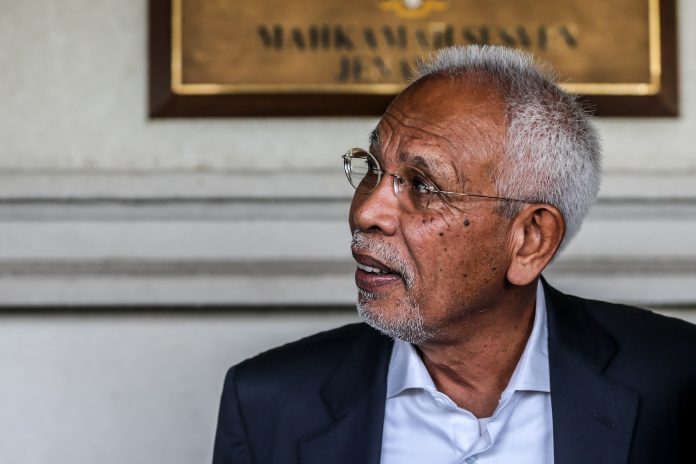
Subscribe to our Telegram channel for the latest updates on news you need to know.
KUALA LUMPUR, March 1 — The application from former Felda chairman Tan Sri Shahrir Ab Samad’s who is charged with failing to declare the RM1 million which he received from Datuk Seri Najib Razak to the Inland Revenue Board (IRB), to transfer the case from the Sessions Court to the High Court will be heard on March 30.
The matter was informed by deputy public prosecutor Mohd Afif Ali, when contacted by reporters after the case came up for mention today before High Court deputy registrar Catherine Nicholas.
“The application will be heard before High Court Judge Mohamed Zaini Mazlan,” he said, adding that today’s proceedings were also attended by deputy public prosecutor Natrah Fareha Rahmat and lawyer Syahrul Syazwan Salehin representing Shahrir.
Shahrir, 72, is charged with money laundering by not stating his real income in the Income Tax Return Form for Assessment Year 2013, which is a violation of Section 113(1)(a) of the Income Tax Act 1967, on the RM1 million, believed to be from unlawful activities, which he received from Najib through an AmIslamic Bank Bhd cheque dated November 27, 2013.
The cheque was then deposited into Shahrir’s Public Islamic Bank account on November 28, 2013.
He was charged with committing the offence at IRB, Duta branch, Government Office Complex, Jalan Tuanku Abdul Halim here on April 25, 2014.
The charge, framed under Section 4(1)(a) of the Anti-Money Laundering, Anti-Terrorism Financing and Proceeds of Unlawful Activities Act 2001, provides a maximum fine of RM5 million, or imprisonment for up to five years, or both, if found guilty. — Bernama


